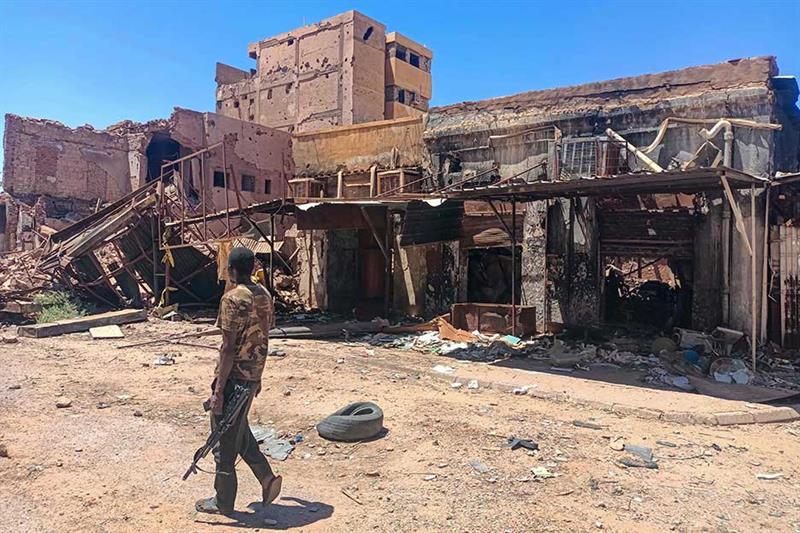After almost two years of intense fighting, the Sudanese Armed Forces (SAF) have won a symbolic victory over the Rapid Support Forces (RSF), retaking the Republican Palace in Khartoum. The recapture of key areas has boosted the SAF’s confidence, and its leadership has vowed to continue pressing until the RSF is defeated. But the RSF’s continued drone strikes, including one that killed four Sudanese journalists and several soldiers, suggest the war is far from over. Asmaa Al-Husseini evaluates the latest situation in Sudan for ahram online.
Despite losing ground in the capital, the RSF remains a formidable force, maintaining control over large areas of Darfur and key locations, including the airport in Khartoum. The group has also strengthened its alliances with various armed groups, including the Sudan People’s Liberation Movement-North (SPLM-N) and the Justice and Equality Movement (JEM), which recently announced plans to form a parallel government.
Former UN envoy to Sudan Volker Perthes described the SAF’s military advances as significant but warned that the RSF’s stronghold in Darfur could prolong the war. Meanwhile, tensions between Sudan and its neighbors are escalating. SAF commanders have accused Chad of providing logistical support to the RSF, prompting a harsh response from the Chadian government, which has warned of a possible conflict. Concerns have also emerged over Uganda’s military presence near Sudan’s border with South Sudan, further complicating regional dynamics.
At the same time, Sudan’s diplomatic dispute with Kenya has deepened. The Sudanese government has announced a ban on flights to Kenya in response to Nairobi’s perceived support for the RSF, adding to an earlier suspension of Kenyan imports.
As the conflict continues, Sudan is facing an unprecedented humanitarian crisis. The country is currently home to the world’s largest displacement crisis, with more than 150,000 war-related deaths and millions of people on the brink of famine. The UN has warned that food aid supplies are critically low and the rapid spread of diseases such as malaria and cholera is making the situation worse. UNICEF estimates that two-thirds of Sudan’s population – more than 30 million people – will need urgent humanitarian assistance this year, including 16 million children.
Despite repeated international calls for a ceasefire, both warring parties remain in their positions. With no sign of peace talks on the horizon, Sudan risks further devastation, deepening regional instability and an even greater humanitarian catastrophe.



